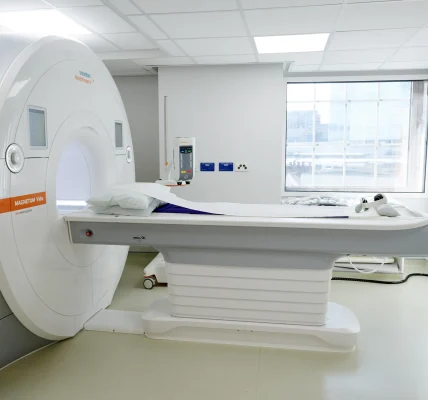In an era where car theft is a growing concern, investing in a reliable car alarm system is not just a precaution; it’s a necessity. Car alarms are designed to deter thieves, alert owners, and enhance overall vehicle security. This article delves into the importance of car alarms, their types, features, installation processes, and maintenance tips, providing a comprehensive guide to help you protect your vehicle.
Understanding Car Alarms
Car alarms are electronic security devices installed in vehicles to prevent theft and unauthorized access. They function by emitting loud sounds or alerts when a breach is detected. The core purpose of a car alarm is to scare off potential thieves and notify the owner or bystanders that a vehicle is being tampered with.
The Importance of Car Alarms
The importance of car alarms cannot be overstated. Here are a few reasons why they are essential:
Deterrence Against Theft: The mere presence of a car alarm can deter thieves. Most criminals prefer easy targets, and a visible alarm system often leads them to choose another vehicle.
Peace of Mind: Knowing that your vehicle is protected by an alarm system can provide peace of mind. This is especially important in areas with high crime rates.
Lower Insurance Premiums: Many insurance companies offer discounts for vehicles equipped with advanced security systems. This can lead to significant savings over time.
Quick Notification: In case of a theft attempt, car alarms send immediate alerts to the owner, enabling quicker responses.
Types of Car Alarms
Car alarms come in various types, each offering different features and levels of protection. Understanding the options available is crucial when selecting the right system for your vehicle.
Passive Alarms
Passive alarms automatically activate when the vehicle is turned off and the keys are removed. These systems offer a seamless level of security, as the owner does not need to manually set the alarm. They often include features such as door sensors and ignition locks.
Active Alarms
Active alarms require manual activation by the owner. These systems typically come with a remote control, allowing users to arm and disarm the alarm. While they offer flexibility, they may be more susceptible to user error.
Immobilizers
An immobilizer is a type of alarm system that prevents the engine from starting without the correct key or fob. This added layer of security makes it difficult for thieves to drive away with the vehicle, even if they manage to bypass other alarm features.
GPS Tracking Systems
Modern car alarms often include GPS tracking capabilities, allowing owners to monitor their vehicle’s location in real-time. In the event of theft, this feature enables law enforcement to track and recover the vehicle more efficiently.
Key Features of Car Alarms
When choosing a car alarm, certain features can enhance its effectiveness and convenience. Here are some key features to consider:
Siren and Strobe Light
A loud siren and flashing strobe light are standard features of most car alarms. They serve to attract attention and deter potential thieves. The louder the alarm, the more likely it is to scare off intruders.
Shock Sensors
Shock sensors detect any impact on the vehicle, such as someone trying to break a window or force open a door. When triggered, these sensors activate the alarm, alerting the owner and drawing attention to the theft attempt.
Panic Button
Most car alarms come with a panic button on the remote control. When activated, the alarm sounds, and the lights flash, attracting attention in emergencies.
Two-Way Communication
Advanced alarm systems feature two-way communication, allowing the owner to receive alerts on their remote control or smartphone. This feature ensures that users are informed of any security breaches, even from a distance.
Smartphone Integration
Many modern car alarms can be integrated with smartphone applications. This allows owners to monitor and control their vehicle’s security system remotely. Users can receive notifications, track their vehicle’s location, and even start the engine from their phones.
Installation of Car Alarms
Installing a car alarm can be a complex process, and proper installation is crucial for the system’s effectiveness. Here are the steps involved in installing a car alarm:
Choose the Right Alarm System
Select a car alarm that fits your vehicle’s needs and features. Consider factors such as budget, installation complexity, and desired features.
Read the Manual
Before starting the installation, read the instruction manual provided with the alarm system. Familiarize yourself with the components and wiring diagrams.
Gather Necessary Tools
Collect the required tools, which may include wire strippers, soldering iron, electrical tape, and basic hand tools.
Disconnect the Battery
Before working on the vehicle’s electrical system, disconnect the battery to prevent accidental short circuits.
Install the Components
Follow the manufacturer’s instructions to install the alarm components. This typically involves connecting the main control unit, siren, and sensors to the vehicle’s electrical system.
Test the System
Once installed, reconnect the battery and test the alarm system to ensure all features are functioning correctly.
Maintenance of Car Alarms
Maintaining your car alarm is essential to ensure it operates effectively over time. Here are some maintenance tips:
Regular Testing
Periodically test the alarm system to ensure it activates properly. This includes testing the siren, sensors, and remote control.
Check the Battery
If your alarm system has a backup battery, check its condition regularly. Replace it as needed to ensure the alarm functions even during a power failure.
Clean the Sensors
Dust and debris can affect the performance of sensors. Regularly clean them to ensure they work effectively.
Keep Software Updated
If your car alarm is integrated with a smartphone app, ensure that the app and alarm system firmware are updated. This can enhance security and introduce new features.
Consult a Professional
If you encounter issues with the alarm system, consider consulting a professional technician. They can diagnose and fix problems that may arise over time.
Conclusion
Investing in a car alarm system is a proactive step toward safeguarding your vehicle against theft and unauthorized access. With various types and features available, it’s crucial to choose a system that meets your security needs. Proper installation and regular maintenance will ensure your car alarm functions effectively, providing peace of mind and enhancing your vehicle’s security. By prioritizing car security, you protect not only your investment but also your peace of mind on the road.





